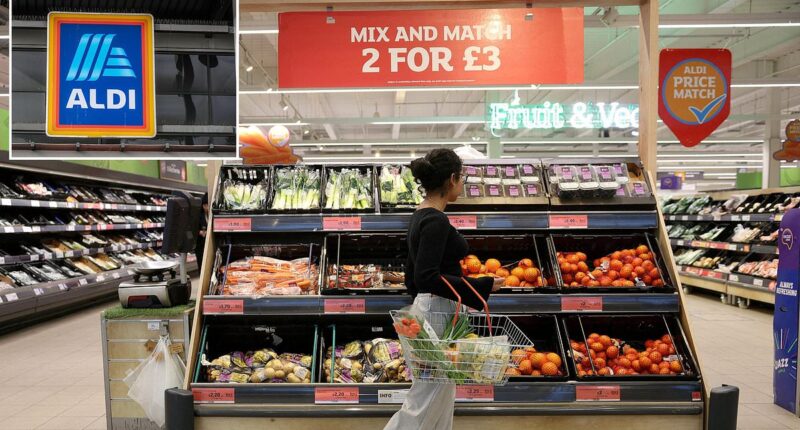Sainsbury’s has joined supermarket rival Tesco in cutting the number of products available in its Aldi Price Match scheme.
In a further setback for struggling consumers, recent official data has revealed that food inflation rose by 3.3% in January. Industry experts are also cautioning about the likelihood of even steeper price hikes in the coming year.
Sainsbury’s has decreased the range of products included in its price match initiative by 115 since November 2024. This adjustment was highlighted in an analysis conducted by The Grocer earlier this month, leading to the total number of items being reduced from 681 to 566 as of 12 February.
However, a spokesperson for Sainsbury’s told This is Money on Wednesday that, as of today, the number of items covered in the scheme was 606.
It is understood that a large proportion of the products included in the recent price match range reduction were from Sainsbury’s own-brand lines.
Reports from IPLC partner Paul Stainton indicate that Sainsbury’s, which introduced its Aldi Price Match program in 2021, has since raised prices on nearly all the items above Aldi’s pricing.

Price matching: Sainsbury’s has joined Tesco in cutting the number of products in its Aldi Price Match scheme
A Sainsbury’s spokesperson told This is Money: ‘Much like the price of individual products, the number of items in our Aldi Price Match campaign can go up as well as down.
‘That doesn’t stop us offering outstanding value throughout the year across thousands of items, whether that’s through Aldi Price Match, Low Everyday Prices, Nectar Prices or our value Stamford Street range.
‘We have invested £1billion into value in recent years which we know customers are noticing as more and more customers are choosing to do their shop at Sainsbury’s.’
In November, Sainsbury’s became the first grocer to extend its Aldi price match scheme to its convenience stores.
Earlier this month, it was reported that Tesco cut the number of products featured in the price match scheme from 790 as of August 2024 to 645.
Tesco will now only include products in the campaign where its Aldi equivalent can be found in at least 10 of the discounter’s stores. Beforehand, five stores were sufficient.
Last month, Asda scrapped its Aldi and Lidl price match initiative after a year as it pivoted to focus on ‘great prices’ rather than competitors.
Food inflation rising
Data from the Office for National Statistics on Wednesday revealed that food inflation increased by 3.3 per cent in January.
This means, on average, the cost of buying groceries is 3.3 per cent more expensive than it was a year ago.
This was the highest annual rate since March 2024 and on the month, prices rose by 0.9 per cent.
Food inflation rose from 2 per cent in December, with meat, bread and cereals driving the biggest price hikes.
Balwinder Dhoot, a director at The Food and Drink Federation, warned: ‘Unfortunately, this month isn’t likely to be a flash in the pan for rising food and drink prices.
‘We’re yet to see the full impact of increasing labour costs, with changes to both National Minimum Wage and National Insurance Contributions coming into force in April, and we expect to see this filter through to shoppers over the coming year.
‘We urge government to work with industry to simplify regulation and bring business costs down to help protect consumers from rising prices.’
Sarah Coles, head of personal finance at Hargreaves Lansdown, said the threat of higher wage bills for supermarkets and food producers meant there was a ‘every chance’ the January upturn in food inflation would not be the last.
Nicholas Hyett, investment manager at Wealth Club, noted that higher food costs coincided with fuel costs as major drivers of headline inflation in January.
He said: ‘Both will increase the squeeze on working households, as will the rise in council tax, which has seen owner occupiers’ housing costs rocket by 8 per cent in 12 months.’
DIY INVESTING PLATFORMS
AJ Bell

AJ Bell
Easy investing and ready-made portfolios
Hargreaves Lansdown

Hargreaves Lansdown
Free fund dealing and investment ideas
interactive investor

interactive investor
Flat-fee investing from £4.99 per month
Saxo

Saxo
Get £200 back in trading fees
Trading 212
Trading 212
Free dealing and no account fee
Affiliate links: If you take out a product This is Money may earn a commission. These deals are chosen by our editorial team, as we think they are worth highlighting. This does not affect our editorial independence.
Compare the best investing account for you

















